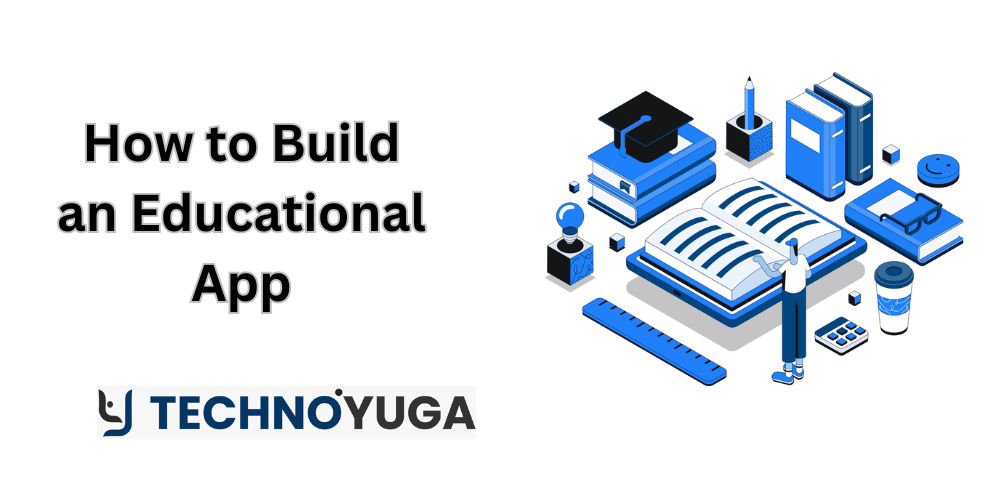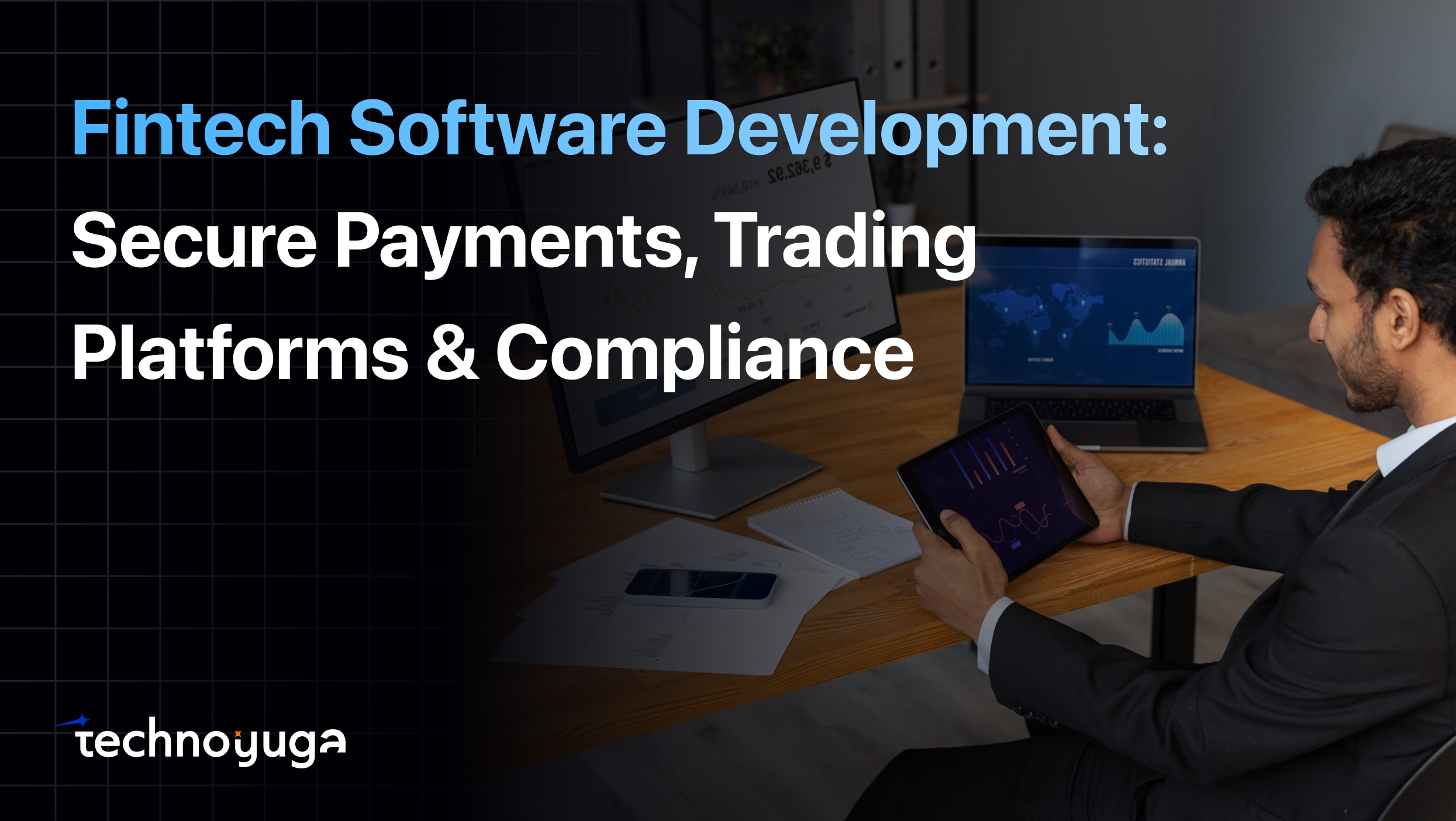Today, the integration of technology has become imperative for educational institutions and learners alike. Building an educational app is something more than simply following a trend.
The ever-rising growth and success received from the best elearning apps like Duolingo has urged business owners to build an educational app. So, whether you are an educator looking to enhance your teaching methods or a developer venturing into the education technology space, this blog serves as your compass for navigating the intricate process of educational app development.
As of the latest market statistics, the global educational app market is witnessing unprecedented growth, with a projected value of $40.9 billion by 2026. The surge in demand underscores the increasing reliance on digital solutions for learning, making this an opportune moment to explore the realm of on-demand education app development. So, before you step into the process of education mobile app development, do not miss reading this blog. It will guide you about ‘How to build an educational app in 2024 and beyond?’
What is Educational App? A Quick Overview!
An educational app is a software application designed to facilitate online learning and enhance educational experiences worldwide. A well-developed elearning app leverages technology to deliver educational content, interactive lessons, and assessments on various subjects.
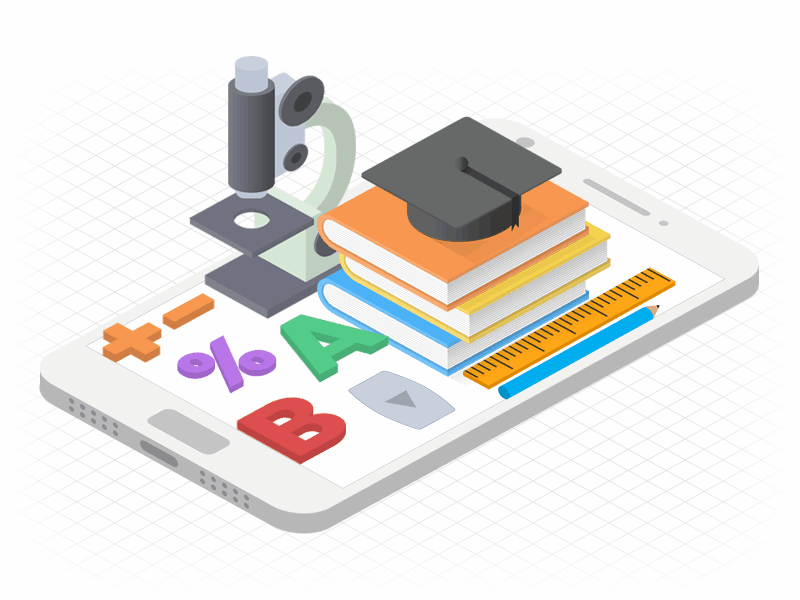
These apps often cater to diverse learning styles, offering features like multimedia presentations, quizzes, and gamified elements to engage users. Educational apps can be tailored for different age groups and academic levels, providing a flexible and accessible platform for self-paced learning. They aim to supplement traditional education by fostering skills development, knowledge acquisition, and critical thinking through user-friendly interfaces and innovative approaches to instruction.
Step-by-Step Process to Build An Educational App
Building a professional educational app targeting a B2B audience involves careful planning and execution. Here is a step-by-step process to guide you through the development as explained by the education app development company experts.
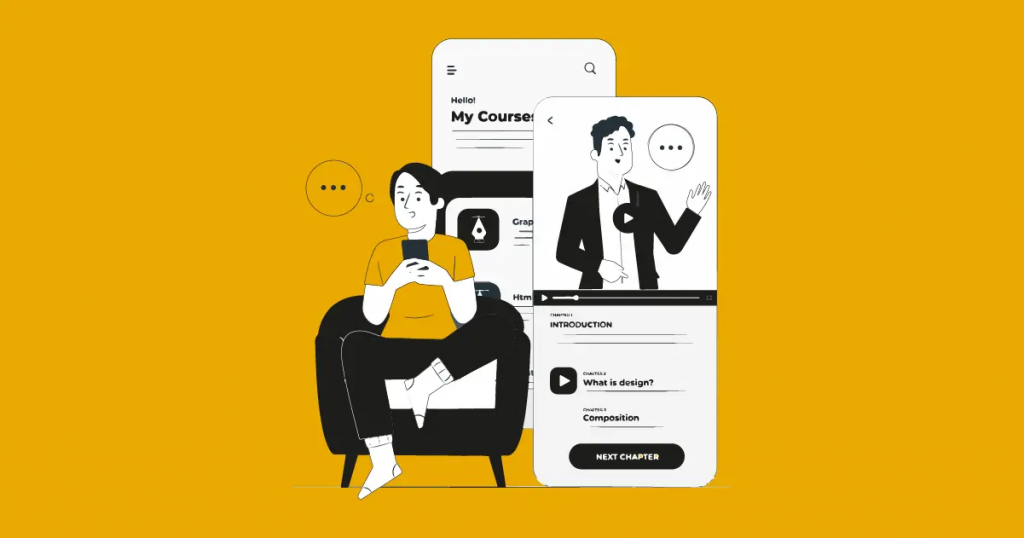
Step 1: Define Your App’s Purpose and Target Audience
- Objective Identification: Clearly define the purpose of your educational app. Understand what specific educational needs or challenges your B2B audience faces and how your app can address them.
- Target Audience Profiling: Create detailed profiles of your target B2B users, considering factors such as job roles, industries, and specific learning requirements. It will guide feature development and content creation.
Step 2: Conduct Market Research and Analysis
- Market Analysis: Research the educational technology market to identify trends, demands, and potential gaps. Analyze the competitive landscape to understand what similar apps offer and identify differentiation opportunities.
- User Needs Assessment: Conduct surveys or interviews with your target audience to gather insights into their preferences, pain points, and expectations from an educational app.
Step 3: Develop a Comprehensive Feature Set
- Feature Planning: Based on the research, create a detailed list of features that align with your app’s purpose and address the identified user needs. Prioritize features based on their importance and relevance to your B2B audience.
- Collaboration Tools: Include features that promote collaboration and engagement, such as discussion forums, group assignments, and real-time communication tools.
Step 4: Design a User-Friendly Interface
- User Experience (UX) Design: Craft an intuitive and user-friendly interface that caters to the specific needs and preferences of your B2B audience. Prioritize ease of navigation and accessibility.
- Branding and Aesthetics: Develop a professional and consistent brand identity for your educational app, ensuring it aligns with the expectations of a B2B audience. Use a clean and visually appealing design.
Step 5: Ensure Scalability and Security
- Scalability Planning: Design your app architecture to accommodate future growth regarding users, content, and features. Consider scalability to handle increased demand without compromising performance.
- Security Measures: Implement robust security protocols to safeguard sensitive user data, as B2B educational apps often involve confidential information. Also, when you build an educational app, adhere to industry standards for data encryption, access controls, and secure authentication.
Step 6: Implement Analytics and Reporting Tools
- Learning Analytics: Integrate tools to track user engagement, progress, and content effectiveness. This data will help you refine your app based on actual usage patterns and identify areas for improvement.
- Customized Reporting: Provide reporting features that allow administrators to track the performance of their users, enabling them to assess the impact of the educational content on their workforce.
Step 7: Test, Launch, and Iterate
- Quality Assurance: Conduct thorough testing to ensure the app functions seamlessly across different devices and platforms. Address any bugs, usability issues, or performance concerns.
- Soft Launch: Release the app to a limited audience for feedback before the full launch. Gather user insights, address any issues, and make necessary improvements.
- Continuous Improvement: After the official launch, continue gathering user feedback and iteratively improve the app based on evolving user needs, technological advancements, and industry trends.
By following these steps, you can build a professional and effective B2B educational app that meets the specific needs of your target audience. Remember that ongoing refinement based on user feedback and market changes is crucial for long-term success. Also, connect with the best mobile app development company professionals who can help craft a grade-worthy educational app.
Key Features Required to Build an Educational App
Do you want to develop a successful educational app for your business? Make sure to insert the right set of features during educational app development, and after that, watch your e-learning app fly. Here are the top features of educational apps, as explained by the on-demand app development company experts.
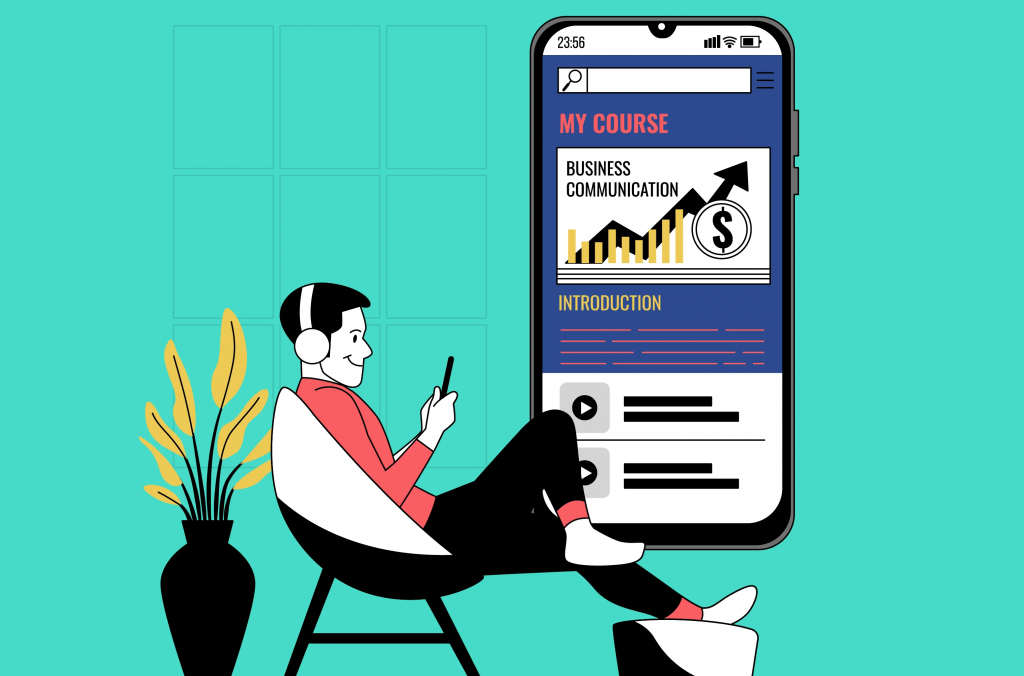
- User-friendly Interface
Ensure a clean and intuitive design that is easy to navigate, especially for users of all age groups and technological backgrounds.
- Personalized Learning Paths
Implement adaptive learning algorithms to create personalized learning paths for each user based on their strengths, weaknesses, and learning preferences. It helps cater to individual needs and maximizes learning efficiency.
- Interactive Content
Include multimedia content such as videos, animations, quizzes, and interactive simulations to make learning more engaging and effective. Different types of content can accommodate various learning styles.
- Gamification Elements
Integrate gamification features like badges, points, levels, and leaderboards to motivate users and make learning more enjoyable. It can foster healthy competition and encourage regular participation.
- Progress Tracking and Analytics
When you build an educational app, provide users, parents, and teachers with tools to track progress, performance analytics, and assessments. Transparent feedback helps learners understand their strengths and weaknesses.
- Collaborative Learning Tools
Include features that facilitate user collaboration, such as discussion forums, group projects, or peer-to-peer learning. Social interaction enhances the overall learning experience.
- Offline Access
Enable users to download content for offline access, allowing them to continue learning without an internet connection. This feature is essential for users in areas with limited connectivity.
- Real-time Feedback and Assessment
Offer immediate feedback on quizzes and assignments to reinforce learning and address misconceptions promptly. Real-time assessment tools help learners gauge their understanding of the material.
- Parent-Teacher Communication
Create a communication channel between parents, teachers, and students. It allows parents to stay informed about their child’s progress and teachers to provide timely updates and support.
- Adaptive Assessments
Implement adaptive assessment tools that adjust difficulty based on a user’s performance. It ensures that learners are appropriately challenged, preventing boredom or frustration.
Why Should Businesses Invest in Educational App Development?
Investing in educational app development can offer numerous benefits to businesses as technology continues to play a significant role in shaping the way people learn and access information. As per the android app development company, the following are the five benefits to invest in educational app development.
1. Increased Accessibility and Flexibility
- 24/7 Availability: Educational apps allow users to access learning materials anytime, anywhere, providing flexibility for individuals with different schedules and time zones.
- Self-Paced Learning: Users can progress at their own pace, facilitating personalized learning experiences. This flexibility is especially valuable for busy professionals or students with varying learning speeds.
2. Engaging and Interactive Learning
- Multimedia Content: Educational apps can incorporate multimedia elements such as videos, interactive quizzes, simulations, and gamified content. These features enhance engagement and make learning more enjoyable and effective.
- Personalized Learning Paths: Apps can adapt to individual learning styles and preferences, offering customized learning paths based on user performance and progress. This personalization can improve understanding and retention.
3. Cost-Effective Training and Development
- Reduced Training Costs: Businesses can use educational apps for employee training and development, reducing the costs associated with traditional classroom training, printed materials, and instructor fees.
- Scalability: Educational apps can scale easily to accommodate growing users without incurring substantial additional costs. It makes them a cost-effective solution for businesses with diverse training needs.
4. Data-Driven Insights and Analytics
- User Progress Tracking: Educational apps can provide detailed user engagement, progress, and performance analytics. This data allows businesses to track the effectiveness of their educational programs and make informed decisions for continuous improvement.
- Identifying Knowledge Gaps: Analytics can help identify specific areas where users struggle, enabling businesses to address knowledge gaps through targeted interventions or content adjustments.
5. Global Reach and Market Expansion
- Global Audience: Educational apps enable businesses to reach a global audience without the constraints of physical locations. It benefits companies offering online courses, language learning, or other educational content.
- Market Expansion: Businesses can use educational apps to expand their market reach and establish a presence in new geographic locations, reaching customers who may not have access to traditional educational resources.
In conclusion, investing in educational app development can empower businesses to deliver more accessible, engaging, and cost-effective learning experiences. The flexibility, interactivity, and scalability of educational apps, combined with data-driven insights, can contribute significantly to the success of training programs and market expansion efforts.
What is the Cost to Build An Educational App?
Creating an educational app involves various factors that can influence the overall cost. The cost can vary depending on the app complexity, features, development platform, design elements, and geographical location of the development team. Here’s a table outlining the key factors affecting the cost to build an educational app in 2024 and beyond.
| Factor | Description | Cost Range |
| App Type and Complexity | Basic flashcard app vs. interactive learning platform with quizzes, games, and multimedia | $5,000 – $8,000+ |
| Platform (iOS, Android, Web) | Developing for multiple platforms increases costs | $5,000 – $8,000 |
| User Authentication and Profiles | Integration with user accounts, profiles, and authentication systems | $5,000 – $10,000 |
| Content Management System (CMS) | If the app requires frequent content updates or user-generated content | $10,000 – $15,000 |
| Multimedia Integration | Including videos, audio, and interactive content | $5,000 – $10,000 |
| Gamification Features | Adding gamified elements such as badges, rewards, and leaderboards | $5,000 – $10,000 |
| Social Features | Implementing social sharing, discussion forums, or collaboration features | $5,000 – $15,000 |
| Third-Party Integrations | Integration with external services like payment gateways, analytics, or APIs | $5,000 – $10,000+ |
| Design and User Interface | Quality UI/UX design, animations, and customization | $10,000 – $15,000 |
| Testing and Quality Assurance | Rigorous testing for functionality, security, and user experience | $5,000 – $10,000 |
| Maintenance and Updates | Ongoing support, bug fixes, and updates | $5,000 – $15,000+ |
| Geographic Location of Development Team | Development costs may vary based on the region of the development team | Varies |
Keep in mind that these mobile app development cost ranges are estimates and can vary based on specific project requirements and the expertise of the development team. Additionally, ongoing costs for maintenance, updates, and hosting should be considered for a comprehensive budget.
Planning to Build an Educational App? Connect with TechnoYuga!
Embarking on the journey of developing an educational app is a significant step toward revolutionizing how we impart knowledge. In the digital age, where technology continues to reshape traditional learning methods, crafting an innovative and effective educational app requires a blend of expertise and vision. It is where TechnoYuga emerges as your trusted partner in turning educational aspirations into reality.
At TechnoYuga, we understand the pivotal role education plays in shaping the future, and we are dedicated to empowering educators and learners through cutting-edge technology.
Our team of seasoned and dedicated mobile app developers, designers, and education specialists collaborates seamlessly to bring your educational app concept to life.
Whether you need a simple education app or a complex and advanced e-learning app like Duolingo, TechnoYuga has the skills and knowledge to transform your ideas into a feature-rich and user-friendly application. Feel free to share your requirements with our iOS app development company experts.
